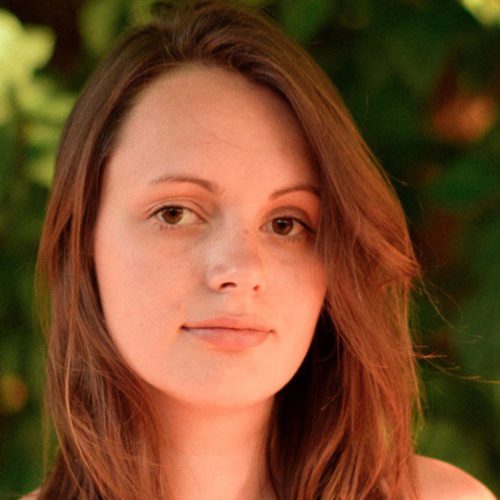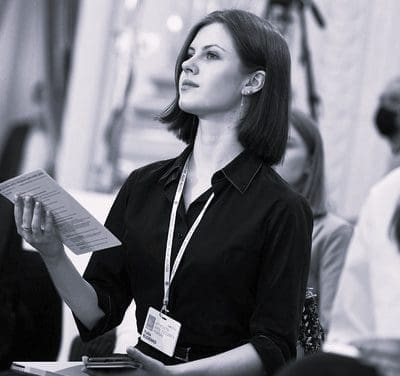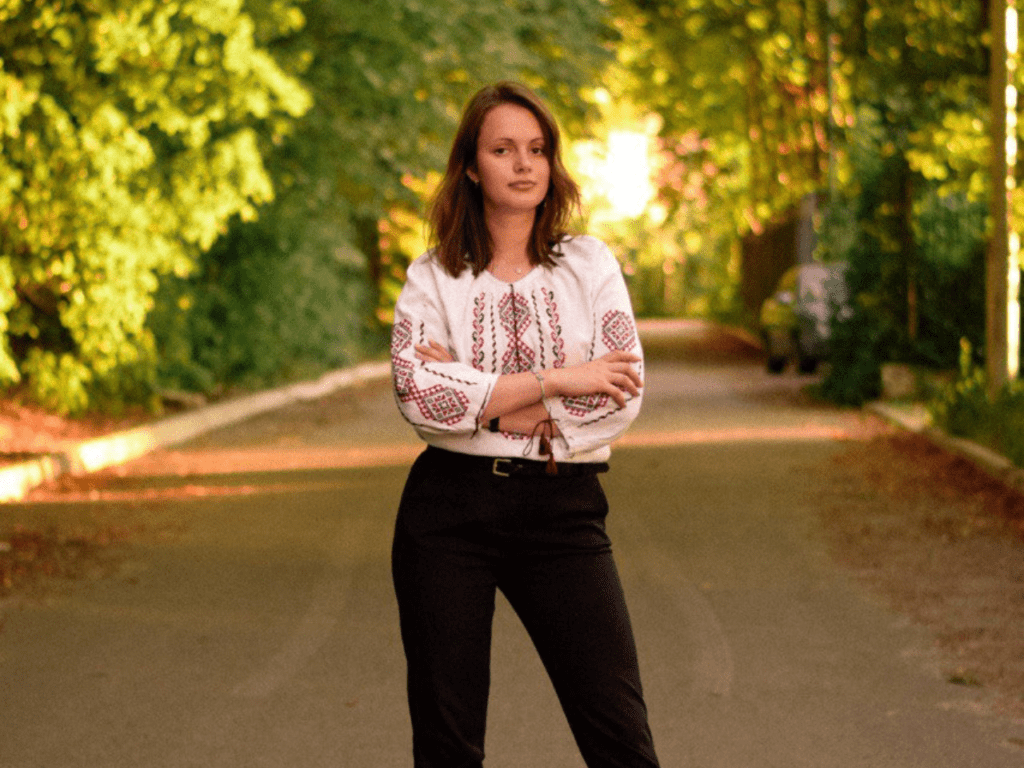After a childhood under occupation, woman in Ukraine faces war once again
The experiences I had in 2014 still haunt me today. I remember my mom, granny, and I sitting on the porch. Out of the blue, we saw Russian military planes fly overhead. They dropped bombs and we ran into the underground shelter. Out dog ran with us. He knew how to hide too. Now I feel no pain when I see houses destroyed. I killed all that pain in 2014.
- 2 years ago
December 12, 2022

KYIV, Ukraine — The first time war came to my home in May 2014, I was just 16 years old and a sophomore in high school. Now, I face war in Ukraine once again.
I clearly remember the morning in 2014 when I heard shootings for the first time. The sun just began to rise, and it remained dark outside. I woke up hearing what I thought was heavy rain banging on the window.
Read more stories out of the Russia-Ukraine War from Orato World Media.
My mom entered my room and I asked, “Is that rain and hail?” “No,” she said, “It’s not rain. That is shooting.”
That marked the first day of war when separatists seized a border checkpoint close to my house. I did not go to my school that day. The authorities told us to stay home. I never again sat at a desk at the school I attended for so many years. I never returned to those classes or experienced graduation with my friends.
Beatings, shelters, friends, and ice cream: a summer at war
I spent that entire summer under occupation during which I stayed at home in Stanytsia Luhanska, a settlement in Luhansk Oblast. Since we lived in a private house, we could garden and sell our products in the Ukraine-controlled area. Going there also gave us a chance to buy food and contact other people. Back at my home, we had no electricity or way to communicate.
Every day I felt more and more scared to take trips out of the occupied area. The conflict only escalated, and we felt completely unprotected. During one trip, another vehicle hit our car and the driver, who was a “strong man,” beat us up.
We approached separatists at a checkpoint and showed them photos of the strong man’s vehicle number, but they did nothing. The perpetrator, who visited our food market, went unpunished.
While it remained a warm summer, we always wore sweaters and pants at home for the times we had to rush into underground shelters, where the temperature dropped significantly. My only distraction came from my visits to a pond near my grandmother’s house, where I met with my peers and talked to them.
We ate from the garden, but I missed ice cream and sausages. We had no one to deliver the food and the refrigerator did not work well anyway. Then, one day, we left Stanytsia Lukanska for Bolovodsk – another settlement in Lahansk Oblast under Ukrainian control. We went to a shop and bought ice cream. I felt so happy that day!
Children under occupation: the fear to leave, and the fear to stay
During that time, we heated water in the sun using plastic buckets and showered outside. We had a generator to help get water and for minimal power. At night, we watched the news, listening for any information we could get about other parts of the country. We tried to understand what the soldiers experienced on the frontline, even though we were on the frontline ourselves.
Reading books helped me survive that summer. I had a special connection with The Count of Monte Cristo by Alexandre Dumas. Eventually, I gave the book away to the War Childhood Museum – a symbol of the adventures I missed out on.
In August 2014, I left our home in Stanytsia Luhanska to continue my studies. My mom made me do it. I cried when I went to pick up my documents from the school because I studied there for 10 years. I loved my school and my teachers so much; I could not understand why I had to leave my life and go live with relatives in the village.
For a long time, we were too afraid to leave Stanytsia Luhanska. We lived near the checkpoint separating Russian- and Ukrainian-controlled territories. It felt so scary going through checkpoints because we heard stories about people being shot on their way. Nevertheless, my little sister and I went to be with relatives in the village of Bilovodsk to continue studying outside of the occupation.
A new school, bombings back home, and flour from the Red Cross
Through that first semester, I could not accept my life or the place I lived. I counted the months and semesters until my return home. These were my teenage years and I missed being a teenager.
I lived with my little sister who I had to look after. I made sure her studies went well, her clothes were clean, and she felt happy. We lived with a granny for a while before moving into the dormitories. Despite her disability, she helped us with everything, but we tried to remain independent and help her too.
Sometimes, I did not know what was happening back home. I would not hear from my mother for days, and the news spoke of bombardments again. Those days proved to be the worst. Despite her difficult situation, my mom sent us money sometimes, and tried to create comfortable living conditions – to make sure we had what we needed. We received social services benefits from the Red Cross and once, they even gave us a 16-kilogram bag of flour.
By the second semester, I began to accept my new life; to acknowledge I would never return to my school back home. I had to plan for my own future and prepare for university. When I had to decide what kind of job I wanted to do after high school, I settled on working in energy to provide people with electricity. Perhaps living without light for three months deeply impacted me. I passed the exam in 2015 and entered Kharkiv Polytechnic Institute.
Just as she settles into a new life, war comes again
I felt shocked when I moved to Kharkiv, and people did not talk about the war we lived through back home under occupation. Eventually, I adapted to my environment and faced a turning point. I began building a new life. With my stipend, I did not need a job yet, so I helped out civically as I could.
In 2019, I graduated and moved to Kyiv for my internship. Over time, my priorities and interests changed. I did not want to go into engineering or energy; but continue my work in civic engagement. I wanted to help people. Right before this new phase of the war with Russia broke out on February 24, 2022, I became the director of a charity.
People thought war was coming and the day before, on February 23, my boyfriend and I had a serious talk. “What will we do if war happens,” we asked each other. We agreed that day to stick together and to endure the war, come what may. The next day at 5:00 a.m., my friend called us as we slept peacefully in our flat.
My boyfriend awoke me, exclaiming, “This is it! It has started!” Reports came out of shootings in Kharkiv and Russian tanks in the city. My hands and voice began to shake. As we heard bombs in the background, we leapt into action. It only took 10 minutes to pack, but it felt like an eternity.
Staying to face the Russian invasion, this time by helping those in need
By now, as an adult, I have faced all the stages of acceptance of this war. While my boyfriend and I agreed to see it through, at times I thought if war happened, I would leave Ukraine. I feared I could not live through it a second time.
On that day in February, I panicked. We spent the entire night in a cold subway station scrolling through my news feeds. The next morning, I had a huge breakdown. I was not coping well. We decided it was best to go home. I took a bath, warmed up, ate, and we made the decision to evacuate. While friends from abroad offered us a place to stay, we chose to remain in Ukraine. We only needed a safe place to work and would make ourselves helpful.

Like so many other Ukrainians, we fled west to a friend’s place, away from the Russian troops. It took two weeks before our sleep patterns normalized, and we began coping with the stress so we could go back to work.
When the Russians shelled the Zaporizhzhia Nuclear Power Plant I felt so angry. They risked a nuclear explosion, endangering not only Ukraine but themselves and other neighboring countries. I tried to communicate this disaster to my relatives in Russia, but they eventually chose to listen to their television, not me.
Today, I live in the reality of war. I feel it is my responsibility to stay in Ukraine, taking trips abroad only to secure donations for my charity.
Visions of bombed schools take her back to her childhood, “We must not stop until we win this war”
At a recent conference, someone asked me, “Where do you see yourself in five years?” I left the room. I cannot imagine my life in five years, nor can I imagine my future or my goals. I just try to work and distract myself. Imagining what life could be like even at the end of 2022 seems impossible.
The experiences I had in 2014 still haunt me today. I remember my mom, granny, and I sitting on the porch. Out of the blue, we saw Russian military planes fly overhead. They dropped bombs and we ran into the underground shelter. Out dog ran with us. He knew how to hide too. Now I feel no pain when I see houses destroyed. I killed all that pain in 2014.
It hurts me more to see destroyed schools. A few years ago, Russians launched a missile at my school back home. When I went into a burned-up school in Kyiv in 2022, it hurt deeply. I know what it feels like for these children to lose that environment and to live life every day as children in war.
Yet, I also know the importance of supporting people in occupied territories. They have no access to Ukrainian news, the internet, or communications. In the grey zone, they get exposed to Russian propaganda and are left without adequate help. We must support people in occupied territories more. Otherwise, they will begin to feel left behind and lose their solidarity with Ukraine, with their home.
I can say with certainty, we must not stop until we win this war.






























































































































































































































